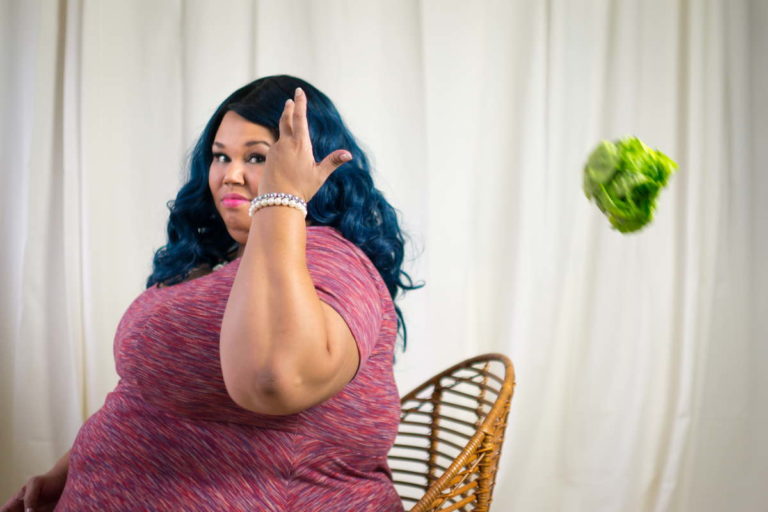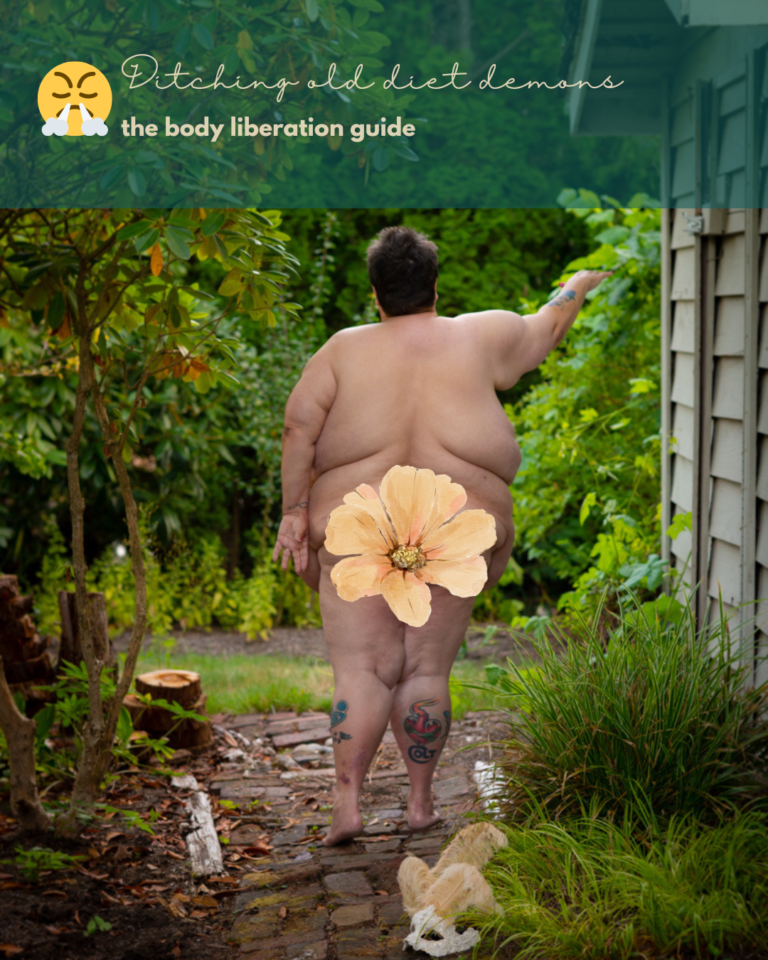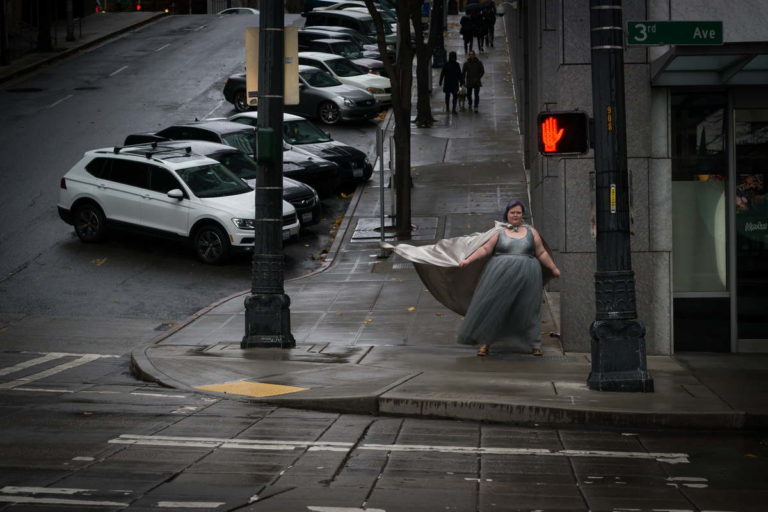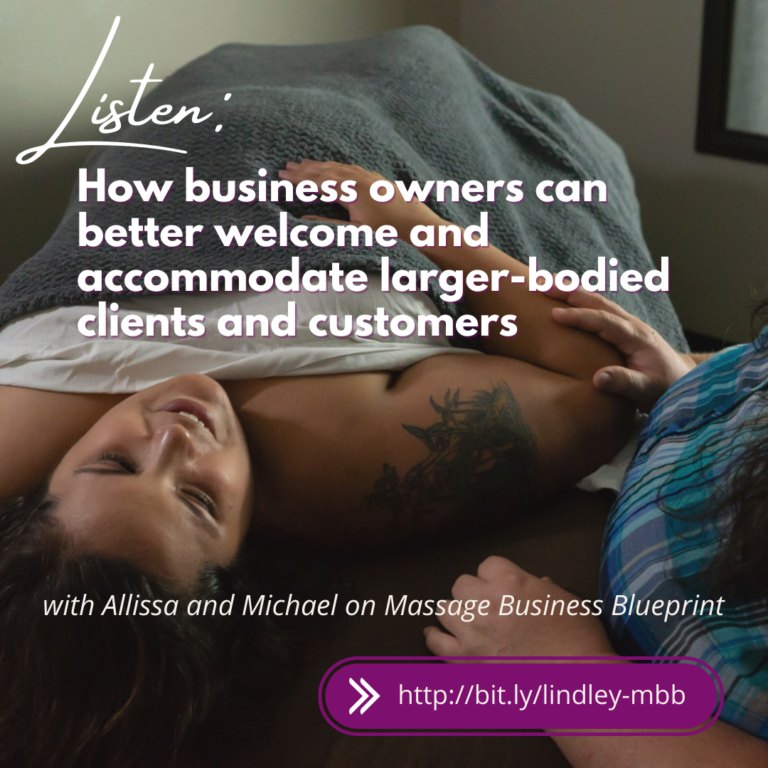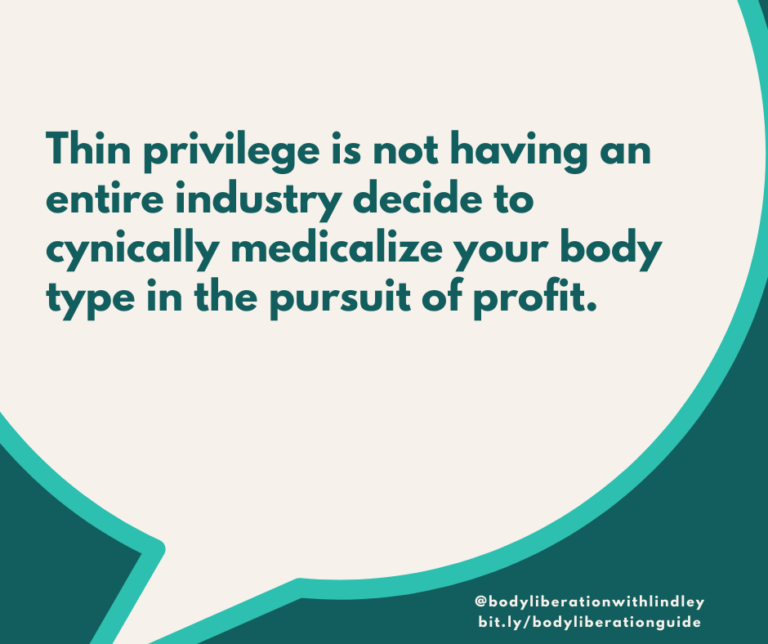Listen: Lindley on the Recovery Bites Podcast with Karin Lewis
In this episode, Karin Lewis is joined by Lindley Ashline, photographer, author, cat mom, entrepreneur, musician and activist. Lindley creates photographs that celebrate the unique beauty of bodies that fall outside conventional “beauty” standards. She fights weight stigma by giving fat people a safe place to explore how their bodies look on camera and by increasing the representation of fat bodies in photography, advertising, fine art and the world at large. Lindley is also the creator of Body Liberation Stock (body-positive stock images for commercial use) and the Body Love Shop (a curated resource for body-friendly products and artwork).
SOME OF THE TOPICS DISCUSSED:
- The science of bodies in terms of weight
- The fat acceptance community before body positivity
- How the photography community does not serve individuals in marginalized bodies
- Transforming your passion to activism
- Exclusion of marginalized bodies and those who photograph marginalized bodies in the the photography industry
- Aspirational versus realistic photography and the need to coach clients through the process of showing their true selves
- Beauty standards as currency and power in our society
- How the methods for pursuing beauty standards can be both expressive and oppressive
- The difference between feeling bad about your body and being oppressed for your body
- How big shifts in power often result in a big shift in beauty standards
- Collective change as a means to push back against society’s beauty standards
- The value in removing profit from the beauty industry
- Reframing our body image stories
Episode Transcript
Transcription test
[00:00:00] Karin Lewis: I’m Karen Lewis and welcome to recovery bites. A show that gets real about recovery, where we welcomed voices in the field and voices of experience. Join me for candid interviews with experts in eating disorder and mental health recovery listeners can look forward to new perspectives, meaningful conversation, diverse connection, and compelling.
[00:00:29] Personal narratives that make a powerful difference in how we live episodes, focus on life beyond recovery, the good and the not so good, the successes and the challenges and the authentic accounts of recovered lives. Not their whole story. Just bites.[00:01:00]
[00:01:01] All right, everyone. Here we go. My guest for today is Linley Ashline and I am telling you. This is like no other episode. Linley is such an incredible articulate speaker. At one point, I literally said, I have to pause for a moment because you took my breath away. So I’m just going to leave it at that.
[00:01:29] Cause what more needs to be said. All right, everyone. Let’s go.
[00:01:37] Good afternoon, everyone. And welcome to another episode of recovery bites. I am really excited about this week’s guest. This week. We have Linley Ashline Linley. Welcome to the show. Thank you. I just think this is going to be a really powerful episode. [00:02:00] Um, I, I don’t even want to say any more about who you are, what you do, because I would love for you to just introduce yourself to the listeners and talk about the work that you do.
[00:02:09] It’s beautiful.
[00:02:11] Lindley Ashline: All right. I’m Lindley. And I am a photographer writer and fat activist, a body acceptance activist. I live outside Seattle, Washington, and I use she, her pronouns. I do a lot of different things. Um, and I have a short attention span. So this works out really nicely for me, but I do, uh, I do client photography, portraits, boudoir sessions, small business.
[00:02:37] I do stock photography. Uh, primarily of people in large and very large bodies for other people and businesses to use in their marketing. Um, I have a web shop called the body love shop that is all body positive and fat, positive goods and artwork. Um, and I do help at every size consulting and, uh, and a lot of, uh, activism work, particularly on [00:03:00] Instagram, around body image and, uh, and privilege and systems of power.
[00:03:05] And, and it’s such fulfilling work and I’m so I’m so glad to be able to do.
[00:03:11] Karin Lewis: There’s there’s so many things I want to touch up on and, and I also want to acknowledge we are, we, I was going to say filming. We are recording this quite some time ago. Um, one of the things I want to talk about is what just happened on Facebook.
[00:03:28] With the whistleblower. And I don’t know if you saw any of the articles, but they were talking about how Facebook, Instagram, things like that leads to eating disorders and mental health issues and all this. So that’s something I just want to put over on the, on a shelf. I want to first start with. How did you get into this field?
[00:03:50] This industry, let the listeners know that because, you know, I know your story. So I would like people to understand why you’re doing this. [00:04:00]
[00:04:01] Lindley Ashline: Yeah, I, um, there’s so many factors that come together in any given person’s life story. Uh, but the, the most important parts of this for me, uh, were, uh, does anybody remember live journal anymore?
[00:04:18] Karin Lewis: I’m sorry.
[00:04:21] Lindley Ashline: What is live journal was a, pre-Facebook a community and journaling site. And, uh, and it was very nerdy, which I’m a huge nerd. So that, that worked out nicely. But it was, it was one of the sites that existed before social media, as we know it today. Um, I think it still does exist actually, but, uh, but there were, you had your personal.
[00:04:44] Uh, page where you would write posts. And then there were community groups and I stumbled across, this was about 2007. Um, I still want across a group called fashionista. It’s like fashionista, but with the word bat. And [00:05:00] it was a complete revelation for me because I had. Growing up. Um, you know, just like everybody in, in the developed world exposed to these messages about diet culture and these messages about what bodies are good and what bodies are bad.
[00:05:16] And. Bodies of certain sizes and shapes should or shouldn’t wear. And I ran across this community that was full of people, primarily CIS women, um, who were wearing amazing clothing and they were confident and they were bold and they were wearing form-fitting dresses and they were wearing things that were tight and had horizontal stripes and bright colors and all these things that were told that, that.
New in the Body Love Shop
[00:05:44] You know, larger people shouldn’t wear. And it was just an absolute revelation. Um, and I just lurked, uh, you know, I just, I just watched for a really long time and eventually I began doing my own, [00:06:00] uh, my own outfit of the day post. So taking a picture of myself almost every day and whatever outfit I was wearing at the time I was working a corporate jobs, like, you know, your standard, uh, office worker day job and taking a photo of myself several times a week, started forcing me to learn what my body actually looked like.
[00:06:21] Um, and to see what actually existed because we have so many body image messages internalize. But when we look in the mirror, we can be kind of shocked by what’s, you know, by how our self-conception is different from what actually exists. And so I started learning to see myself, um, and then in conjunction with that, I had been a photographer for a really long time already at that point, uh, just doing nature photography, and which is, which is still a very, you know, a passion that I have, um, So these two things that were sort of both hobby [00:07:00] level, I guess just sort of co-existed in my life.
[00:07:03] Um, for many years, until in about 2015, um, I had had one too many awful corporate jobs, and I said, I can’t do this anymore. Um, I can’t, I I’m going to, I’m going to, um, work and miserable myself into the ground and, and I quit and started a photography business. And. Because these things, uh, were coexisting for me, um, the photography and, uh, from that live journal group, I stumbled across the fat acceptance community.
[00:07:38] This was before body positivity was really a thing. Um, and I started learning about the science of bodies and why diets don’t work and why. Um, why bodies do what they do as far as weight is concerned. And I’m a person who likes evidence. I like to know why things work. I like to know [00:08:00] I I’m a very practical person as far as show me the, show me the evidence.
[00:08:05] And, uh, and so learning about. Why fat bodies do what they do and why all bodies do what they do. Um, by the way, when I say the word fat, I’m using it as a neutral descriptor for larger bodies, um, you may or may not feel comfortable using that for yourself or other people. That’s fine. I just want you to know that I’m not using that as an insult, but, but learning this.
[00:08:29] Um, and again, I wasn’t really active in the fat acceptance community, but I was absorbing blog posts and I was reading articles and I was, I was learning and going through my own body image process. So when I quit my day job, I knew immediately that I wanted to work with fat people. Uh, both because. Fat people are wildly underrepresented, uh, and, and not served by the traditional photography community.
[00:08:57] And because these are my people, you [00:09:00] know, I live in a fat body. I, I understand how those bodies, uh, function physically. I understand what’s going to be comfortable or not comfortable for people in larger bodies. And, and it’s just such an underserved community. So it was both an opportunity to do good things for.
[00:09:17] Uh, people who are underserved and people like me. Um, but from a business standpoint, that was a market opportunity, um, that, uh, and that sounds a little cold-blooded, but when you’re going to be a small business person, you have to find a niche and, and that was mine. And. From there. I started out as a, um, as a photographer whose online presence was very, very low of your body.
[00:09:48] It’s good. And there’s nothing wrong with that, but I couldn’t stop there. I just found over time that the people I was working with had been taught [00:10:00] so many things. About how their bodies were bad. And I, I just kept getting angrier and angrier and, and just wanting to fight and defend all these people in fat bodies who have been taught most horrible things about themselves in their bodies, because they have a new exist in a fat body.
[00:10:21] And, and that’s how I kind of got into being an activist myself. Um, because I just couldn’t. Uh, you know, I just couldn’t stay quiet about these things. The more that I learn and the more that I heard people’s stories, um, and I had the privilege to be able to do that because I don’t have a corporate day job.
[00:10:40] Nobody’s going to fire me. Uh, and I am safe to do that, so I can find on other people’s behalf. And so I did.
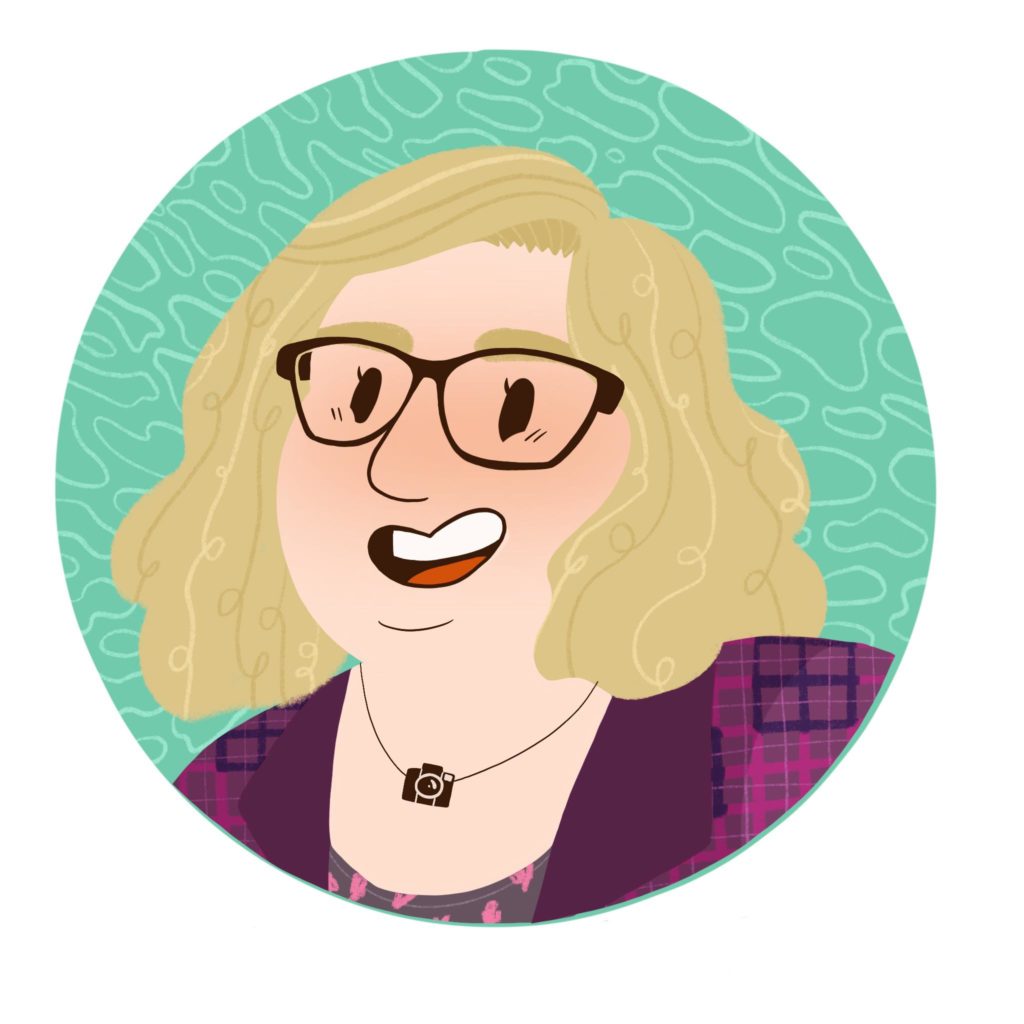
Every Monday, I send out my Body Liberation Guide, a thoughtful email jam-packed with resources on body liberation, weight stigma, body image and more. And it’s free. Let’s change the world together. Subscribe »
[00:10:48] Karin Lewis: And I interrupt for one moment. I have a question. Did I hear this wrong? I was listening to some of the other episodes podcasts you’ve been on. Did I hear wrong that [00:11:00] you, as the photographer, there were biases against you as a photographer in a larger body, that that in and of itself was also challenging something that you had to have that you had to fight against it.
[00:11:13] Did I, did I hear that?
[00:11:16] Lindley Ashline: No, that that’s entirely correct. Um, at the time that I started in 2015, um, and now, now it’s changing, which is wonderful. Uh, I’m looking forward to the day when body positive and fat positive photography are so common, uh, that they’re not even, but it’s not a niche anymore. Um, but, but both, yeah, as, as a professional, I don’t have, I don’t have a lot of photography.
[00:11:45] I don’t have a network within the photography community other than a few other fat positive photographers, uh, because, uh, both being in a marginalized body and working with marginalized people, those [00:12:00] are things that are not acceptable in the larger photography world right now. Um, and again, that is slowly changing.
[00:12:06] I’m looking forward to it, you know, changing completely. Um, but people. Um, I have not found a lot of success networking and, and making professional connections in that world. Uh, in part, because I talk a lot about the worth of fat bodies in a way that makes people who are very invested in the status quo very uncomfortable.
[00:12:29] So yeah, that that’s entirely correct.
[00:12:32] Karin Lewis: The interesting thing is though, is it might be. Quote unquote, that cultural norm, but it’s actually, I I’m maybe getting my words mixed up, but it’s not the status quo because the research says that 67% of the women in the United States are a size 14 and above. And if we were going to look at [00:13:00] what modeling and photography.
[00:13:03] Typically represents, that’s not the status quo. Am I getting my, my words mixed up?
[00:13:11] Lindley Ashline: No, you’re a hundred percent correct. And that’s because photography, um, as a. Market. And as it is currently practiced is aspirational. So when you go look at a photographer’s portfolio or their website, you expect to see bodies that are, um, perfected beyond what those bodies actually like in real life.
[00:13:40] Um, because. We have been taught that that’s what we want. Um, if I’m a mainstream photography customer, Um, who was going to a mainstream photographer. I expect them to smooth my skin until I looked like a China doll. I expect them to remove any fat rolls I might have. I expect them [00:14:00] to tighten my butt and give me a facelift via Photoshop.
[00:14:04] Um, for me to look like an aspirational version of myself. And so, because photographers are running businesses in a world where. That is valued. That’s what they get really good at delivering. And so most photographers, you’re not going to see larger bodies on their websites because their websites are aspirational.
[00:14:24] And, and so it’s a real shift, a real adjustment. Um, if you’re working with a photographer, who’s going to portray you as you are to. Uh, to be okay with experience in that, to know that you’re going to look like who you actually are in the body you have right now. And so a really important part of my working with clients is coaching.
[00:14:47] Um, the sessions that I do, they’re, they’re half photography and half coaching, uh, because. It is really, and I’m not a therapist, you know, I’m not, uh, I’m not a mental health expert of any [00:15:00] kind. Um, but an important part of my job is to guide people through learning, to see themselves as they are
[00:15:07] Karin Lewis: well, you’re guiding yourself.
[00:15:09] You’re not guiding yourself. You’re guiding others through lived experience, but lived experience that you’ve taken. Like through your own insight and maybe your own inner work perceive it differently, which is why, by the way, to some degree you might not be a know technically a therapist, but you’re, you’re spiritually guiding people.
[00:15:34] You’re helping them. And that’s
[00:15:36] Lindley Ashline: amazing. And, and all of it is just that. Getting angry at other people being oppressed and about being oppressed myself, um, has led to this, you know, the more I speak out, the more helpful it is for other people. And the more I can incorporate that into my work, because people who come [00:16:00] to me for photo sessions, it is often the first space they’ve ever been in, in their entire lives, where somebody genuinely thought their body was over.
[00:16:11] As it existed right then. Um, and, and genuinely wasn’t, I’m going to be honest. Um, and I’m not, I’m saying this as a reflection of our culture. Um, when I say this, but, uh, for people who are in very fat bodies, um, this can be the first time that they have been able to display those bodies and not had somebody be gross.
[00:16:34] And have, you know, not have people have a visceral reaction to those bodies that we just, that we naturally existed. And, and just to have that, I don’t necessarily want to call it a safe space because it can feel very unsafe when there’s a camera pointed at you, even if you trust the person holding it.
[00:16:50] So I don’t want to call that a safe space necessarily, but a secure space where they know they’re going to be treated respectfully and they know that those [00:17:00] photos of them are going to be done. With respect and dignity, because there’s such a difference between, um, photos that are created with respect, that that honor the bodies that are on that, you know, on that, that virtual stage, that metaphorical stage and bodies that the photographer is just taking as a foundation for photo.
[00:17:27] Karin Lewis: I, I also want to point out that when a picture is photo-shopped, when somebody looks at their own picture and automatically goes to how their body looks, we’ve lost that the, the caption of the memory that’s, that’s the intention of photography of pictures, not to scrutinize over yourself, not to. You know, clean up blemishes it’s to capture [00:18:00] a moment and be able to reflect back on that, on how funny it was or how loved you felt or holding someone’s hand, or, you know, doing a boudoir photo shoot, which, which is filled with love and excitement and, and, you know, things like that.
[00:18:14] And it all gets lost on body.
[00:18:19] Lindley Ashline: Yeah. And I think, I think a really important component of. My beliefs and the way those come out in, in this work is that our bodies are the holders of our stories. Our bodies have, you know, every wrinkle and stretch mark and scar and tattoo and that, and, and, and, uh, self harm scars and, and, uh, you know, the way our hair falls and, and, you know, whether we have a particular limb or not, those are all part of our story.
[00:18:52] Um, I worked a couple of years ago, pre pandemic. I photographed two different women in the same year who [00:19:00] had, uh, who both happened to have large scars on their torsos. A woman was from heart surgery and one was from weight loss surgery. And both of those women assumed I would want them to cover that up.
[00:19:12] Um, partly because they were so ashamed. To have those visible scars and partly because they just assumed that I would be ashamed of that and that I would want to hide that. And both of those women, I, I said, no, please allow me to capture. Because that’s an important part of your story that is that’s part of your life, you know, and I want to hear those stories too, while we’re here, please, please, if you want to share those.
[00:19:40] Um, and, and the thing is that not everyone is ready for that. Not everyone is going to be comfortable showing off, you know, a scar like that, but if they are able to trust me in that process, you know, we’re going to create beautiful photos that include those parts of your story, uh, because of. Uh, the way that our [00:20:00] beauty standards work, um, they w those standards erase us when we erase our wrinkles and we erase our stretch marks and we cover up our scars.
[00:20:09] And we, I don’t know. Um, we do do things with our hair, that our hair doesn’t necessarily naturally want to do that, to make it conform to beauty standards. Um, that is a racing us. Creating these form factor bodies are trying to, uh, that that are on us and our stories are valuable as individuals and collectively, and, and so our bodies hold those and, you know, and if that means.
[00:20:38] You know, I’ve worked with folks who have chronic illnesses, who don’t, who are able to stand for more than 60 seconds. And I think a mainstream photographer would get very impatient with that, but that’s your story? That’s your body? Who am I to, to say no, that’s inconvenient for me. So no, we have a chair ready and we have something for you to lean on and we, you know, we put you in chair [00:21:00] positions and it’s fine.
[00:21:01] Um, So, so my job is not, I mean, yes, it’s to take photos, but a con to come back to what you were saying is to create that experience where when you see those photos, you have that memory of being valued and being okay as you are, as opposed to, uh, you know, sort of being this foundation to be worked on.
New at Body Liberation Stock
[00:21:24] Karin Lewis: I don’t mean.
[00:21:26] I don’t know if this is a hard turn, but I want to go back to what I said at the beginning of the episode, when you had said you work on things with like Facebook and Instagram and things like that. So what is happening to our culture? What is happening to the brains and the hearts and the souls of these young kids that can now actually do their own Photoshop?
[00:21:50] Shopping is someone’s called own Photoshop on, on their pictures. Like what, what thoughts do you have about this? I mean, they’re [00:22:00] being taught at such a young age that their story has to still look a certain way. And that breaks my heart Lindley. Like what, what are your thoughts about that? Because this is the opposite of what you do,
[00:22:17] Lindley Ashline: right?
[00:22:17] I think, I think I have two thoughts about that. Uh, one of them is in the moment and one of them is, is historical, um, in for this in the moment perspective. Um, yes. We are handing people who are at formative ages, these tools, um, that are being used, you know, to harm themselves and others. But we were also handing them untold tools for self-expression like never in history has.
[00:22:48] Uh, the common man, you know, um, just random regular people have had this kind of platform. And we’re seeing, uh, we’re seeing younger people use these platforms yeah. To, [00:23:00] to, um, to self-harm, but we’re also seeing amazing body image activists at 13 or 14 years old on tech dog. We’re seeing people using, using these, um, Photoshop.
[00:23:15] Apps these filtering apps to, to, you know, make themselves the aspirational version of themselves. But we’re also seeing people use that for amazing performance are and self-expression and, and demonstrations of how ridiculous beauty standards are. So I think the tools that we give people will be used in ways that reflect cultural values.
[00:23:37] Um, but they’re also being used in all sorts of wonderful counter-cultural ways. Uh, but from a historical perspective, Something that I read that was really important to me to understand how we got here. Um, it was in one of just bakers, two books, and I’ll have to, maybe we can put in the show notes, which one I’ll have to look up, which one, but she talks about how [00:24:00] every time, um, women have made an advancement in rights, beauty standards have changed.
[00:24:08] And every time, every time when women gained the right to vote, beauty standards changed. Um, when women began to dress slightly more practically in the late 18 hundreds, beauty standards changed. And we got the Gibson girl, uh, when, when women, you know, again, when women gained the right to vote, I’m out of order here historically, but, but when women started working in factories, they’re a world war II.
[00:24:34] Beauty standards changed, uh, during the 1960s. When, you know, when the sexual revolution happened, beauty standards changed and every time they’ve gotten more and more restrictive and, and there’s all sorts of, I want to note here that there’s all sorts of issues of race and class and, and socioeconomic status and things that also play into this that we don’t have time to cover.
[00:24:56] Um, but I want to note that these have primarily [00:25:00] been standards aimed at, uh, Uh, middle-class and wealthy white. And, and, and that there are many, many more factors that play in here, particularly racism. Uh, so I just, I just want to know that that is a thing that I’m aware of, but every time these beauty standards have become more restrictive, um, and the penalties for not meeting them change, you know, in proportion.
[00:25:23] And what this means is that. Honestly, it’s a big distraction because, um, there’s, there’s also a quote, I’m half remembering things this morning, but there’s also a quote from, I think Gloria Steinem or Naomi Wolf about how, uh, when women are busy losing weight, they don’t have the energy to change the world.
[00:25:42] And, and this is it’s extremely true because. How much energy have we wasted on this?
[00:25:49] Karin Lewis: I often say to clients, do you realize the potential you have in a positive way to be in the world? If [00:26:00] you put as much energy. Into your eating disorder, as you did towards something that will, that will reflect your true values.
[00:26:10] I, I say to clients all the time, you know what, and sometimes I can tell, like I can tell the ones that are very, they argue in their negotiable with the, with the treatment team. You would be the best lawyer. Like if we could just take this energy and put it somewhere else, you, my darlin are going to be president of United States.
[00:26:29] If we could, you know what I’m saying? And that’s, that’s what that quote.

Every Monday, I send out my Body Liberation Guide, a thoughtful email jam-packed with resources on body liberation, weight stigma, body image and more. And it’s free. Let’s change the world together. Subscribe »
[00:26:35] Lindley Ashline: No, no, it’s true. How much, how much time do we waste? How much energy do we waste on? And I, and I, I want to caveat this again because, uh, I’m not one of the people who says makeup is bad and you should never wear it. Um, because when I talk about meeting cultural beauty standards, um, which includes, you know, your hair, the, the size of your body, uh, whether you [00:27:00] wear glasses or contacts, um, every single the shape of your.
[00:27:03] Um, your, the way your teeth look, every single aspect of our bodies, the size of your feet. Uh, when we strive to meet beauty standards, we are also surviving in a system that has penalties or rewards for meeting or not meeting the. And, and those penalties are significantly more severe. The more intersections you have, and those are the things that are.
[00:27:29] For example, I am a fat woman, a very fat woman. I am marginalized for that. There are limitations to how much I can participate in the world and, and, and the way I am treated. Um, but I’m also a white woman, which gives me a number of advantages. It means that I’m not treated poorly for my skin color. If I were both fat and white.
[00:27:49] Um, I wouldn’t be treated poorly for both of those reasons and those things add up. So when I talk about intersections, that’s what I mean. Um, but, and that, and that’s why it’s very [00:28:00] important to understand how race plays into beauty standards. But to do this, uh, to do this in a world that penalizes us for not doing it is survival.
[00:28:10] It is. Uh, you know, it, it can literally be life or death. Uh, and so, so I’m not ever going to shame someone for pursuing beauty standards because that is power and currency in our society. And, and you get to do you, you don’t get to, I mean, you know, I don’t get to shame you for wearing makeup or not wearing makeup.
[00:28:30] You do you and those things are also tools for self-express. You know, ask any drag queen that makeup is a, is a really powerful tool for self expression. It’s not, it can also be a tool of oppression. Um, but I want to be very clear that there’s lots of currents going on here that aren’t just, you know, beauty, beauty methods of meeting beauty standards are bad.
[00:28:50] Hair curlers are bad, you know, it’s way more complicated because as humans we’re complicated, that’s how it works. Um, but, but pursuing these standards [00:29:00] also wastes our time and Andrew. Um, and how much, how much time and energy do we spend on that? And that’s time and energy and resources, money, social connections, et cetera, that, that we’re not using on living our best lives.
[00:29:15] I’m not using on change in the world, not using for standing out for ourselves. Um, and those are trade offs that we all get to make. Again, you know, you get to make the ones that you need to in your life. But, and I don’t get to tell you what’s right or wrong, but, but these are also things that are distractions from the, the work of being ourselves and living our lives and changing things in the way that we want to see them changed.
[00:29:41] And, and that is a very deliberate thing I want. That’s what I really want you to understand is that that is. Um, the fact that you’re having to make those choices is part of a system of power that goes back hundreds of years, uh, and actually comes back to racism, um, uh, particularly [00:30:00] fatphobia and weight stigma.
[00:30:01] Those things come back to racism. And there is a, there’s a fascinating book called fearing the black body by Dr. Sabrina strings. It took me, it did take me two tries to get through it because I’m not used to reading academic material, but it’s fascinating. And again, it’s so important to understand.
[00:30:17] ’cause as a, you know, as a white woman, um, I don’t experience oppression based on my skin color. And so I’m essentially collateral damage here. And while I’m talking about collateral damage to you, I want to touch on, on eating disorders real quick and, and body size. Um, because when I talk about size of oppression, uh, one of the common objections that I get is, well, I’m in a thin body or a thinner body, and I feel bad about my body.
[00:30:44] So everybody feels bad about their body. It’s not about, you know, you’re not being oppressed. We would just all feel bad. And, and the, the answer to that is that we all have body image challenges, because we all live in this system that profits from us feeling bad about our bodies [00:31:00] and encourages that. Um, but not everyone is systemically limited and discriminated against on the basis of their body size.
[00:31:09] And that’s why. There’s a difference between feeling bad about your body and being oppressed for it. Um, and, and in the context of eating disorders, it’s particularly important to understand this because one of the, one of the factors around eating disorders is that fat folks are much more likely to be able to access a diagnosis or treatment.
[00:31:31] Um, and again, that is part of that system of power and oppression.
[00:31:37] Karin Lewis: You speak so, so eloquently, so beautiful. Like it, it is literally taking my breath away, this, this conversation, this dialogue. And, you know, as I always say, I have so many thoughts that I’m having a hard time directing where I want it to go to one of the things, and this may be off topic, but how you were saying how it’s all about [00:32:00] power and things are deliberate.
[00:32:02] If you even notice. What commercials are aired during what times during what shows they will tailor quote unquote to the person who, you know, during the day where they still think that the woman is home watching soap operas, which by the way, no disrespect, if that’s what you’re doing, but that’s when you have the weight Watchers, commercial, the diet commercial, the, the plastic surgery.
[00:32:31] It is, it is very well thought out. You are, you are not going to get these commercials during super bowl Sunday or during a regular football game. Like everything is very, very methodical. And if you are not aware of that, if you are not an educated consumer, you are going to become hypnotized and mesmerized by these ads, especially cause they were.
[00:32:58] And repeat and [00:33:00] repeat. And I don’t know if you have anything to say about that with advertising and marketing.
[00:33:07] Lindley Ashline: No. I once dated a guy many, many years ago, who saw, he’s told me putting on makeup one day. And apparently he was the kind of doofus who never realized that I was regularly wearing makeup around him.
[00:33:20] And so, so he saw me putting it on one day and was just astonished. And he said, well, oh, well, I, I prefer women who don’t wear makeup. And I kinda just made a face at him and kept on doing what I was doing, but I think. Um, I think the, the analogy here is that, um, this whole time he was seeing women who were wearing makeup and didn’t think that they were.
[00:33:45] And so then he was a little shocked and, and where this comes back is the things that we see regularly influence us. And it’s clear that that, because this was a man who had. Um, who had just [00:34:00] always seen women wear makeup and not realized it, uh, cause I grew up in the south and you did not, you went to the grocery store where I’m makeup.
[00:34:06] I mean, that was how it was, you did not leave the house without makeup. Um, so he been seeing all this and he just thought it was people’s was women’s skin that we just all had great skin. Um, and it was, it was fundamentally shocking to him when he figured out that no, we were just all wearing makeup all the time.
[00:34:21] And uh, and so when we become aware of the influences that. Uh, that make us feel the way we do about many different things, but including our bodies, um, it can be a little fundamentally shocking to realize how thoroughly our opinions are affected by what we see. So when we are constantly surrounded by Photoshop bodies, when we are constantly surrounded by.
[00:34:49] Um, by social media posts that make us think that everybody else has perfect and has a glamorous life except the us, uh, when we are constantly surrounded by diet [00:35:00] ads on, you know, on Facebook, on, uh, because I talk a lot about fatness on Facebook. I get absolutely bombarded with, with weight loss ads and I, I mark them all as spam or skinny.
[00:35:12] And, uh, and then they’ll stop showing it to me for a little while and then it will come back. Um, and yes, you can totally mark those as scams because they are. But, uh, but at any rate, these things affect us. I grew up without a T. Um, I mean, we physically had one in our house, but we didn’t have cable. So basically we had PBS and the public broadcasting system for folks who aren’t in the U S and, uh, and so I grew up, uh, sort of raised by cultural wolves.
[00:35:40] And so it wasn’t until sort of high school that I started being able to access, um, things like magazines occasionally, or, or pop culture. I just sort of grew up without access to that. And so. I absorb fewer messages about bodies than my peers did, uh, because I just wasn’t exposed to them, but [00:36:00] I still, I still absorb some of it.
[00:36:02] Um, but you can tell the difference in how relatively easy my body and his journey has been versus some of my peers and some of my friends who were much more exposed to those messages. Um, they do affect us. They do, you know, affect how. Look at ourselves and other people. And so the more we can start being aware of what we’re being told, that is really the first step to starting to untangle it.
[00:36:33] Karin Lewis: It. Uh, I’m going to use the word frightens it because it does, it frightens me that younger souls are being exposed and having access to air brushing and things like that. And I’ll tell you why. There is a time in our childhood that we don’t know these things we aren’t aware. And so. [00:37:00] Let me, let me make sure I say this correctly.
[00:37:02] So I’ll use my own experience. So I was very naive when I was younger and I did not, I actually think it was age appropriate. I didn’t know airbrushing existed. This was all. 35 30, 8 years ago, but it existed. It just didn’t exist on such a grand level where younger people knew about it, which is unfortunate because that was where some of the seeds of my eating disorder came from.
[00:37:28] I would look at 17 magazine, Mademoiselle, you know, whatever they are, and then. Not realizing that airbrushing hat was happening, had a massive impact on me at like 17 or 18. You realize now, like six and seven year olds are being exposed to seeing kids that are airbrushed at 12 and 13. These internalized images and thoughts are happening at an even [00:38:00] younger age that a body is supposed to look a certain way that you’re not supposed to have wrinkles, that all these things, everything is supposed to look perfect.
[00:38:10] It just keeps getting younger and younger, which is also one of the reasons why we are seeing so many more eating disorders. I’m getting calls from parents of nine-year-olds saying my son or daughter. Has been restricting for six months. You didn’t hear of that 30 years ago. I’m sure it existed, but you didn’t, it just keeps getting younger.
[00:38:34] I literally had to hire clinicians at my center that specifically work with younger kids because the ages just keep getting younger and younger. So I don’t, I don’t know if you have any thoughts about that.
[00:38:48] Lindley Ashline: Yeah, I think, uh, again from a, from a historical perspective, again, this is part of another shift, uh, because we now have so much power over our own self image.
[00:38:58] We can take our own pictures [00:39:00] now of ourselves and put them out for the public to see, uh, we it’s another of these big shifts in power, which means that again, there is a huge shift in beauty standards. And, and I think, uh, from a, uh, an in the moment perspective, the best thing we can do is push back against.
[00:39:17] And be the example that we want kids to be seen and be the example for young people that we want to see. Um, and again, there are so many fears, teenage body image activists don’t get me wrong. That pushback is already happening in, you know, in every generation. But, uh, but you know, the best thing I can do is show migraine.
New in the Body Love Shop
[00:39:37] And now I have I’m 41. And so I’m starting, you know, I’m starting to see signs of aging, um, but I have a lovely fat face. So, so my wrinkles don’t show. So I have a nice young face, uh, one of the benefits of being fat, but, uh, but we can show our wrinkles, show our stretch marks show our real skin, um, because the more that, the more images that we flood the internet.[00:40:00]
[00:40:00] And flood social media with that are real and genuine and unwritten. Uh, the more, the more we can help counterbalance that. Um, and, and people who are parents, um, I’m not one, I’m not a parenting expert, but, uh, but demonstrating the values around bodies that you want to see, you know, not trash-talking your body in front of your kids, not making negative comments about other people’s bodies or your kids’ bodies and being supportive for whoever and whatever they are.
[00:40:29] Uh, is just, uh, you know, not dragging them to weight Watchers at five years old. Um, you know, uh, putting images of yourself that are honest out there, you know, for them to see, um, just supporting them in, in whatever way they need for their bodies. Um, that’s one way that we can push back against. The six-year-old is feeling the need to, to filter their selfies, um, because we cannot change that system, single handedly, but [00:41:00] collectively we can make it unprofitable.
[00:41:02] And that is when we start seeing cultural changes when it does not profit. To sell kid’s diet products when it’s not profitable to, to make people feel bad about their bodies so that they buy stuff to try to fix it. That’s when we start seeing cultural changes. So the small things that you can do in your own life collectively will change the world.
[00:41:25] Karin Lewis: I think I’m just in a very nostalgic reflective place, because again, going back to the younger generation, the younger children, I remember at 12 years old, Laying being in my body running like I was 12. I didn’t know anything about having to trust me. My eating disorder. Thoughts started my body image distress started when I was probably like six years old, but I still, I was a kid at 20.
[00:41:58] And now [00:42:00] they have access to not only all of this social media, but again, the messages now at 12 years old, are you still need to change the way you look and that just breaks my heart. I also want to say that it is very, very true about. Parents, how they express things in front of their children. I don’t know if you’re familiar with the book, Andrea, his voice, uh, by Tom and Doris Smelser.
[00:42:30] Unfortunately Andrea died at 19 years old from bulemia and one of the things that Doris says, I had them on the show very early on in this, this show. I’ll just say show twice, everyone. One of the things that Doris said, sort of like if I only knew them, what I know now, every time I looked in the mirror and I criticize my body, my daughter was saying, well, wait a minute.
[00:42:59] I have [00:43:00] that same body. So if you don’t like it, then I, I’m not supposed to like it. If you’re doing something about it, then I have to do something. And so this is where we’re talking about. One person can have a massive impact you as, and I don’t mean to be like you as a parent, but one person can speak positively about their body and have a different impact on a young mind.
[00:43:28] Lindley Ashline: Yeah to, to, to wrap up. I want to tell a really quick story about my grandmother’s arms. Uh, a few years ago, I had my own portraits done by a fellow photographer and I were sleeveless dress. And you can find these photos on my website. They’re very cute. And it’s, it’s this, it’s this cute little dark blue sleeveless dress with, uh, with.
[00:43:48] Literacy by carts all over it. I love it. Um, but the, um, we went into this little brick alleyway in, uh, in Victoria, British Columbia, and I threw my arms up joyfully and did some very playful [00:44:00] poses. And when I got those photos back, the first things I saw were my bingo wings. Uh, and, and that was a challenge for me at the time, because I had never seen them, uh, displayed like that.
[00:44:14] And. Uh, two things hit me right away. One was, oh my gosh, my arms are enormous. Um, and, uh, and the second thing was that my grandmother had these exact same arms. And, uh, and, and this is where honestly, it’s what really made me start thinking about stories and stories being held on our bodies, uh, because that connection was so immediate.
[00:44:38] And the thing is that. I don’t think my grandmother ever loved her body. Um, I think she was ashamed of her arms and I think everyone around her was ashamed of her arms. Um, this is not an intergenerational body love story. Um, but when I saw that immediate connection, I loved my grandma. And I, uh, she passed away when I [00:45:00] was young enough that I, I never really thought about her arms one way or the other, other than to notice that they were, that they were large in the way that kids notice bodies and that they, they, that, you know, she had sort of bingo wings, the hung down.
[00:45:11] And I wanted to honor that, that connection, that story, um, and not be ashamed of it. And, you know, I went, yeah, we call those bingo ways, but they’re also weighing. We have wings in our family. How cool is that? And so now, now, you know, I just call him my wanes and, and, you know, they’re part of my power because they’re part of my story and my heritage and my history and, and I’ve done some, some gorgeous art photos of people who have very large.
[00:45:45] That hang down beautifully from their arms and empower their flight through life. And yes, I realize this is a very hippie and ideal sounding, but that is how we change things is we reframe the, these things about our bodies and about our stories. [00:46:00] And, uh, and so, so my grandmother’s wings have become a really important part of my own body image store.
[00:46:07] Karin Lewis: I also want to say your grandmother’s wings and I’m using your words, re we’re able to wrap around you and hug you and hold you and pick you up and do everything that had to be done. Like we, we, we, we are so far disconnected of just even the function of what our body does.
[00:46:28] Lindley Ashline: Yeah. Yeah. And I, and I want to say to that, I know this sounds all very lovey-dovey, but the thing is.
[00:46:34] Um, without going into my, into my personal history, uh, my family was not, my extended family was not a happy one. There’s there’s, um, trauma and heartbreak and, and, uh, very, very Southern Gothic, uh, you know, history going on there. Um, and so part of that was that I, part of that reframing was that I chose to, uh, rather than this [00:47:00] being, um, someone who was not a good person all the time.
[00:47:03] Like this, this thing being passed on to me, I chose to preserve that in. I did love my grandmother and she was good to me most of the time. And, and, uh, and to take that part of the store. To take the powerful part of the story and the good part of the story and take that into my body and into my body image and not, and not the other stuff.
[00:47:25] Um, so I don’t, you know, I think it’s very easy for, for us when we hear other people’s stories of acceptance to go well, that’s different because you had a loving family. That’s different because. You were thought all along that it was different because you’re pretty or whatever, you know, or you’re, you’re, you’re wealthier than I was growing up, whatever.
[00:47:44] Um, it’s really easy for us to find reasons that doesn’t apply to us, uh, because reasons and, uh, and we have to, that’s part of what we have to work through and that’s okay. We all have to do it.
[00:47:58] Karin Lewis: I could go on easily [00:48:00] for another hour. That being said, we do have to wind this down. Is there, is there anything that I didn’t ask you or that you wanted to share with listeners before I ask your final
[00:48:12] Lindley Ashline: question?
[00:48:14] Excited for the final question, because it actually ties back into what we were just talking about, but I think. Uh, I think, uh, one question that I’m commonly asked on podcasts that I love being asked, because I always want to talk about it is, uh, is talking about how do I learn to see, uh, you know, particularly if I don’t have a professional photographer on tab, how do I learn to see my body with neutrality or love?
[00:48:36] How do I, how do I get there from here? And, and my, my first answer is always surround yourself with bodies that look like. Surround yourself with bodies that are bigger than yours or a different ethnicity than yours, or have different levels of physical ability than yours, or have different mental health challenges than yours.
[00:48:56] Um, because the more, you know, particularly with, with fat [00:49:00] bodies, the more that we see bodies of all sizes, uh, the more that we normalize them, because again, the things that we see repeatedly. Uh, you know, if we’re seeing these WeightWatchers as repeatedly, that’s going to get into our subconscious, if we’re seeing wonderful positive depictions of bodies, and this is so easy now, you know, we can just follow there’s an article on my site that has 40 plus a very large bodies body.
[00:49:28] You know, these are, these are people, not just bodies, but that you can follow on Instagram and you can just go through and follow, follow, follow, and then you have that positive influence. Um, because the more you see all kinds of bodies, not just the Photoshop ones, the more, the more you start to be able to accept bodies that are.
[00:49:47] Uh, that are like your own and other people’s bodies. So that’s always something I like to add because it really does.
[00:49:54] Karin Lewis: I am so glad that you said that, and I’m so glad that we have your [00:50:00] website. Everything is in the show notes because I want everyone to go to it. And I want people to see this and, and get involved in that way.
[00:50:09] So Linley, this is fantastic. Of course. Before I say goodbye. I have to ask you if someone were to write about you on a bathroom stall, what would it say?
[00:50:24] Lindley Ashline: Well, this comes neatly back into our discussion of reframing and choosing what to add to our personal stories, uh, because I am a very fat person who talks about fatness on the internet.
[00:50:36] I get trolled a lot and, uh, and I block and delete that. You know, I, I’m not here to entertain that stuff. It’s not good for my community to see it. So I just, I just delete it. Um, but occasionally somebody gets really creative with their insults and I have chosen to take those and, and I take my favorite ones and I put them on my Facebook bio on my personal Facebook.
[00:50:56] And my favorite one so far has been [00:51:00] holier than now. Problem calls. And I had that on my Facebook bio for the longest time. And that is totally what someone would find on a bathroom stall about me and I, and I, I love it. I was tempted to put it on my business cards. Literally. I
[00:51:14] Karin Lewis: love that. I think that would be fantastic.
[00:51:19] That’s a great response Linley again from the bottom of my heart. Thank you. And thank you for already agreeing to come back.
[00:51:29] Lindley Ashline: Oh, wonderful. Thank you so much for having me.
[00:51:31] Karin Lewis: It has, it has truly been my pleasure. So all right, everyone that does it for another episode of recovery bites, I look forward to speaking with each and every one of you next week.
[00:51:46] Take care and stay safe.
[00:51:53] We hope you enjoyed this week’s episode of recovery bites. Be sure to visit recovery [00:52:00] bites, podcast.com to join the conversation. Access show notes, listen to past episodes and more. You can also find us by searching for recovery bites on apple podcast, Spotify. And major podcast streaming players for weekly episode releases, you can follow us at, at recovery bites, pod on Instagram.
[00:52:24] If you’re interested in becoming a guest on the show or to submit a guest request, please visit Karen Lewis, edc.com forward slash podcast signup. To begin the process. I’d also like to send out a heartfelt thank you to my producer, Jen Galvin. It is unbelievable. The magic she does behind the scenes. All right, everyone.
[00:52:49] See you next week for another recovery bike. Thanks for listening.[00:53:00] .
New at Body Liberation Stock
Hi there! I'm Lindley. I create artwork that celebrates the unique beauty of bodies that fall outside conventional "beauty" standards at Body Liberation Photography. I'm also the creator of Body Liberation Stock and the Body Love Shop, a curated central resource for body-friendly artwork and products. Find all my work here at bodyliberationphotos.com.

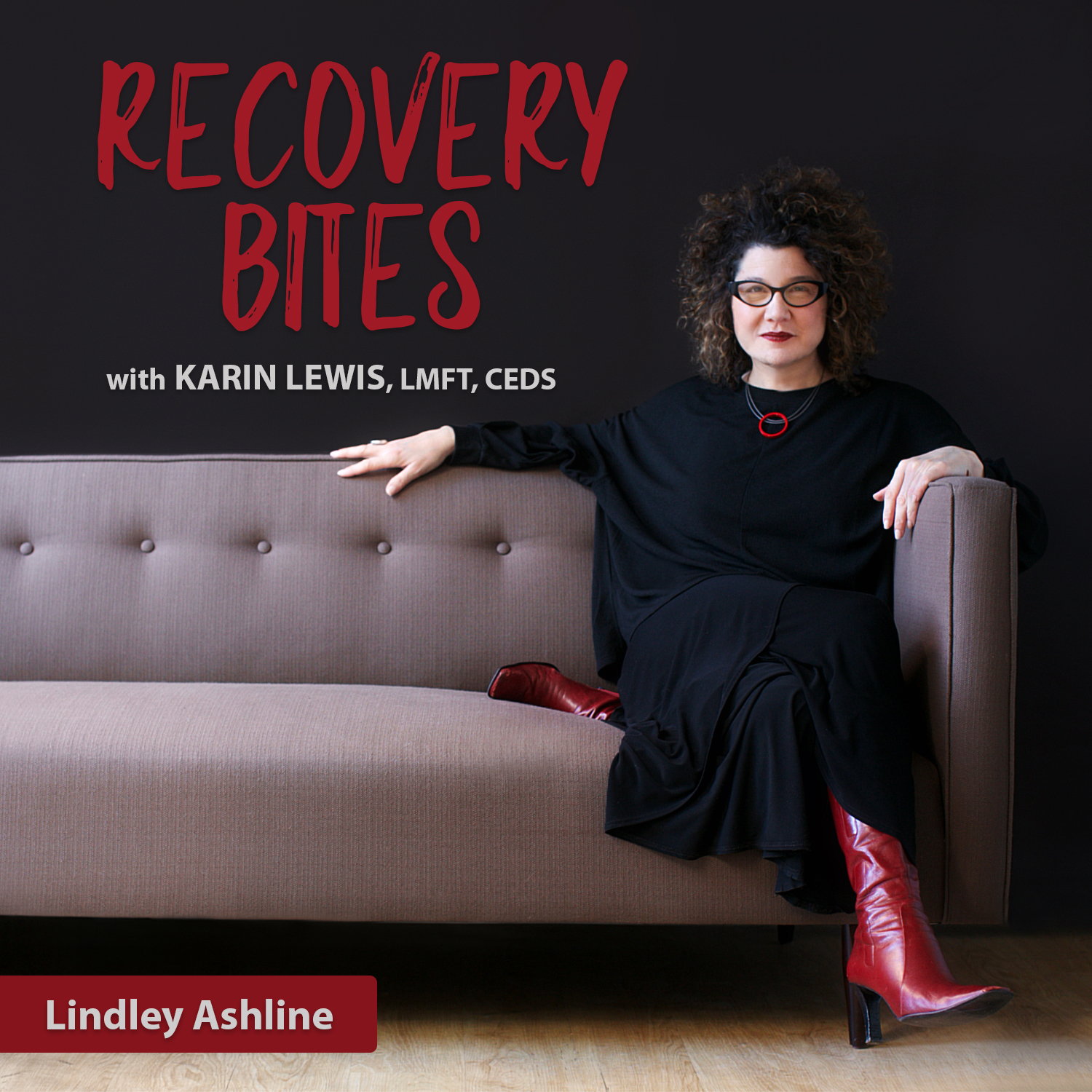

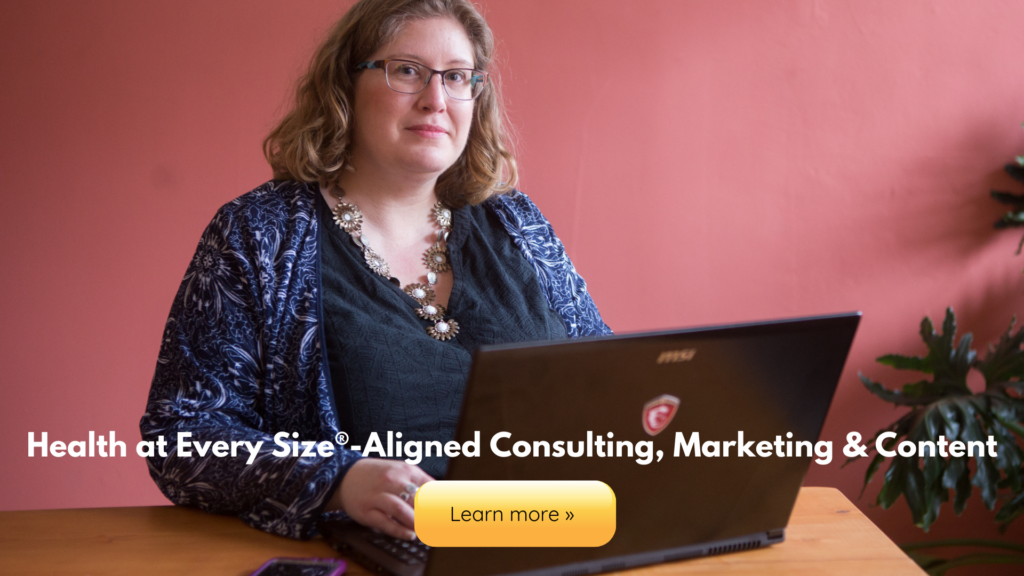
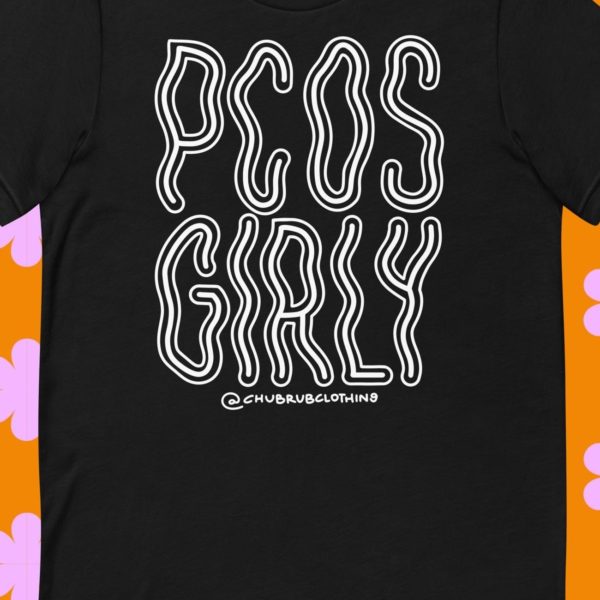
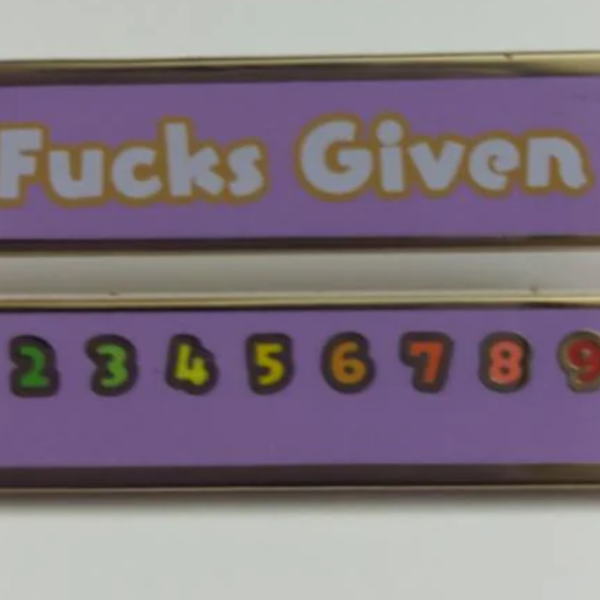
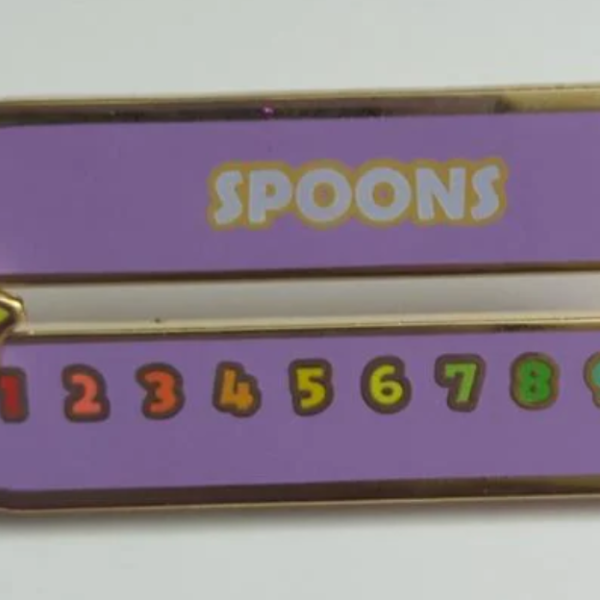
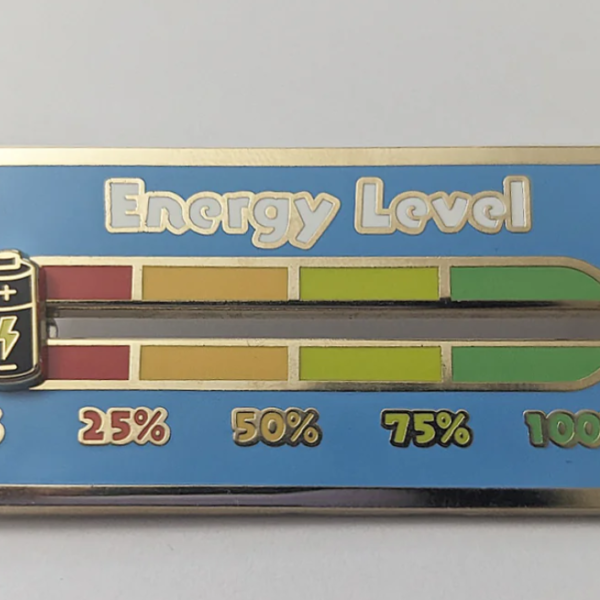
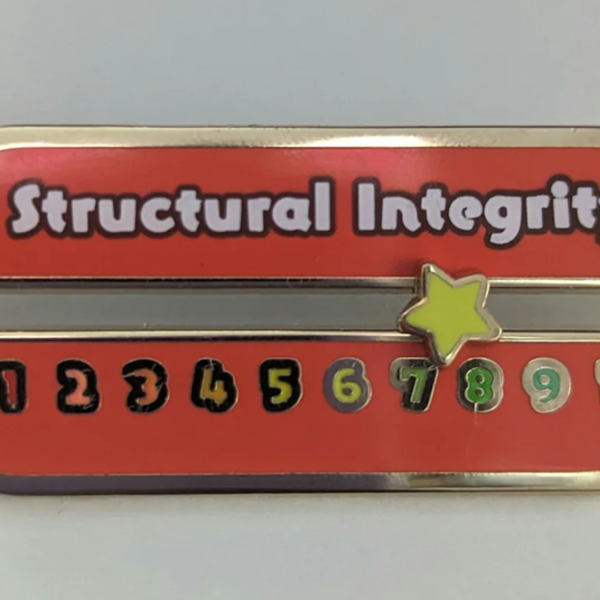
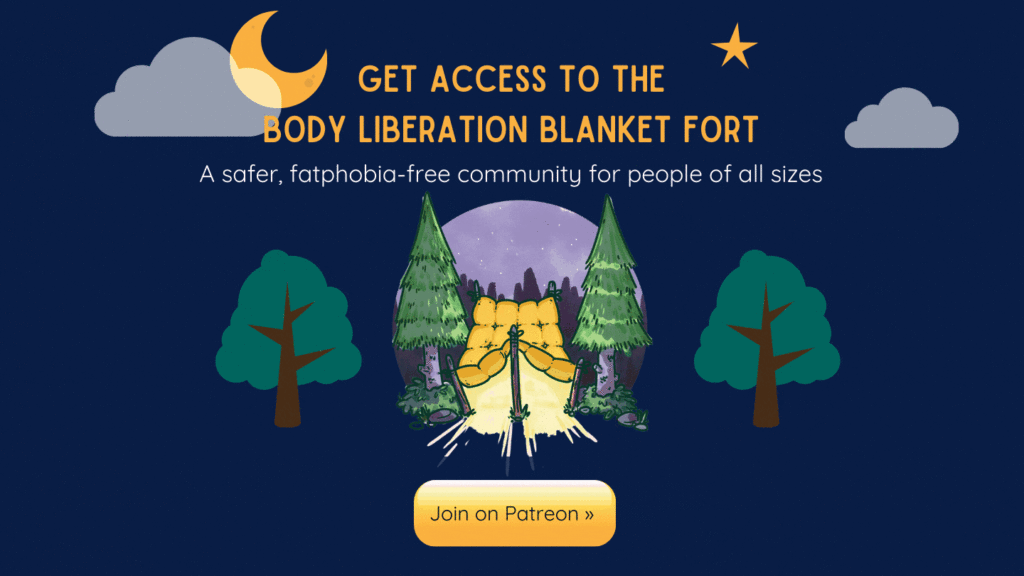
![Illustrated Art Stock: Plus Size Woman Covered with Flowers [Body Liberation Stock exclusive] - Body Liberation Photos & Stock](https://bodyliberationphotos.com/wp-content/uploads/2024/09/Illustrated-Art-Stock-Plus-Size-Woman-Covered-with-Flowers-Body-Liberation-Stock-exclusive-94337-600x600.jpg)
![Illustrated Art Stock: Plus Size Woman Twirls in a Skirt [Body Liberation Stock exclusive] - Body Liberation Photos & Stock](https://bodyliberationphotos.com/wp-content/uploads/2024/09/Illustrated-Art-Stock-Plus-Size-Woman-Twirls-in-a-Skirt-Body-Liberation-Stock-exclusive-94328-600x600.jpg)
![Illustrated Art Stock: Plus Size Woman Twirls in a Skirt [Body Liberation Stock exclusive] - Body Liberation Photos & Stock](https://bodyliberationphotos.com/wp-content/uploads/2024/09/Illustrated-Art-Stock-Plus-Size-Woman-Twirls-in-a-Skirt-Body-Liberation-Stock-exclusive-94323-600x600.jpg)
![Illustrated Art Stock: Plus Size Woman with Hands Over Breasts [Body Liberation Stock exclusive] - Body Liberation Photos & Stock](https://bodyliberationphotos.com/wp-content/uploads/2024/09/Illustrated-Art-Stock-Plus-Size-Woman-with-Hands-Over-Breasts-Body-Liberation-Stock-exclusive-94318-600x600.jpg)
![Illustrated Art Stock: Plus Size Woman with Hands Over Breasts [Body Liberation Stock exclusive] - Body Liberation Photos & Stock](https://bodyliberationphotos.com/wp-content/uploads/2024/09/Illustrated-Art-Stock-Plus-Size-Woman-with-Hands-Over-Breasts-Body-Liberation-Stock-exclusive-94313-600x600.jpg)

